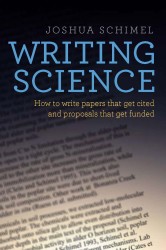Mentoring: the power of kindness
Emily Bernhardt (Professor at Duke and President of the Society for Freshwater Science) wrote a lovely column “Being Kind” about the importance of being kind in science.
http://www.freshwater-science.org/Business/Presidents/2016-Fall-Bernhardt—Being-Kind.cfm
In this she emphasizes the importance and power of being kind. Importantly she distinguishes being kind from being nice:
“In using the word kind I very explicitly do not intend the sometimes synonym nice. As intellectuals struggling to understand the world around us it is vital that we argue, that we hone our understanding through challenging our own views and the views of others. We cannot, and should not, always be nice while intellectually sparring. Yet we can spar while still being kind. We can disagree with a point while respecting the person making it.”
This is analogous to my quote “Friends don’t let friends publish bullshit.” You don’t serve your friends by giving them a pass, but by helping them make their work as good as it can be.
In the column, Emily notes several incidents that for her were notable acts of kindness when more senior colleagues took the time to help her work through challenges. Two of the people she mentioned were Nancy Grimm and myself. Neither Nancy nor I had any more than vague memories of the experience—I’m sure Nancy’s experience was the same as mine: having a fun discussion, puzzling out an interesting problem with a colleague and new friend. I’m sure I had no perception at the time that I was being kind.
But that’s the point: what we experience as our motivation for our actions and what the recipient experiences as the outcome of those actions can be very different. And why it’s important to remember that even what feels like a casual conversation with a junior colleague can have an outsized influence.
My former student Jay Gulledge once highlighted a similar thing, in noting that one of the most significant events of his graduate career was an 8-hour long “argument” we had about an experimental design on a drive from Fairbanks up to our field site at the Toolik Field Station in arctic Alaska. In the end, I gave in and agreed “do it your way.” I remember the trip, but didn’t realize that for Jay it was better than passing his qualifying exams. He knew that I hadn’t caved out of exhaustion—I am as stubborn as Jay if not more so—but because I finally accepted that although I still had issues with the design, no experiment is perfect, and his approach was as likely to succeed as mine (and it did). For me, that trip was just a trip to Toolik; for Jay it was a rite of passage.
In contrast, I well remember an interaction with a senior colleague who was one of the big wigs in soil biology. I met him at the first conference I ever attended. I was an insecure newbie Ph.D. student and was standing talking with Mary Firestone, my Ph.D. advisor. This person came up to her and said “Mary I see you’re presenting a paper on heterotrophic nitrification.” She introduced me and pointed out that I was the one who did the work and was presenting the talk. He gave me a sideways glance, and then turned back to Mary and asked “Do you believe your data?” I got the distinct impression that I was beneath his notice—and I have never either forgotten, nor forgiven him.
It can be hard to remember, as you move up the career ladder, just how influential your words and acts can be on junior colleagues who look up to you. We carry those little interactions with our seniors for the rest of our lives. They can be deeply enriching, or they can be scarring. So remember to try to be kind, even when you may be dissecting someone’s work. The world is more fun when people are friendly and supportive of each other.
I’ll end by passing along another quote that Emily used that was from Anne Galloway: “Everyone here is smart, distinguish yourself by being kind.”


Leave a comment